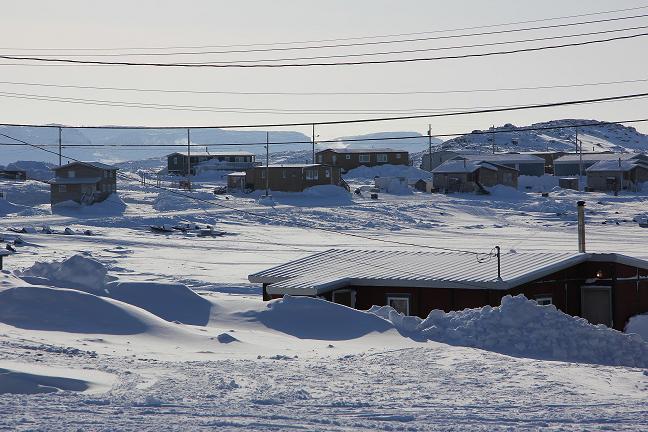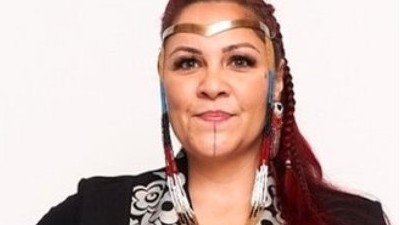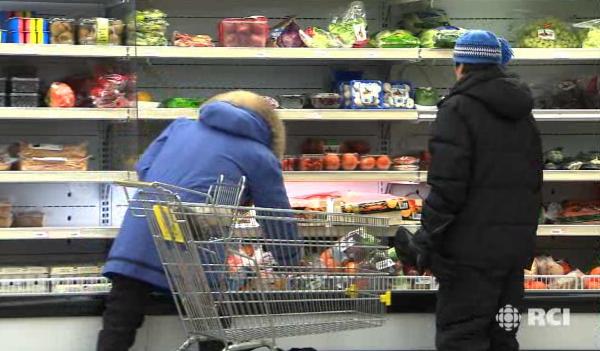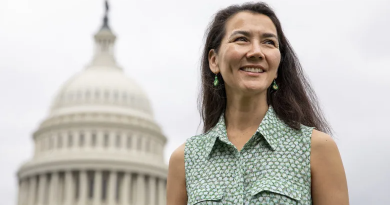Inuit women’s org urges federal leaders to address housing, costs, and violence

With Canada in the midst of a federal election, the organization that represents Inuit women in the country is urging federal party leaders to place a greater focus on the issues affecting the Arctic.
Pauktuutit, an advocacy group, said it’s particularly hoping to hear more about how parties plan to address urgent concerns in the North including housing instability, rising costs of living, and violence against Indigenous women and girls.
“We want to remind all parties and candidates that there are ongoing commitments that remain unfulfilled in terms of rejecting settler colonialism, ending violence, addressing systemic racism, discrimination and sexism against Indigenous women, girls, and gender diverse individuals,” Nikki Komaksiutiksak, Pauktuutit president and CEO, said in a phone interview.
In particular, she said it was important for whoever forms the next government to implement the recommendations from the National Inquiry into Missing and Murdered Indigenous Women and Girls (MMIWG) and the Truth and Reconciliation Commission (TRC) and ensure the full implementation of the United Nations Declaration on the Rights of Indigenous Peoples (UNDRIP).
‘Commitments exist beyond each government’

UNDRIP was adopted by the United Nations in 2007 and includes 46 articles that affirm the rights of Indigenous peoples, and touches on everything from language to culture to resources.
Implementation of UNDRIP was called for by both the Truth and Reconciliation Commission, set up to examine the legacy of the residential school system in Canada, and the National Inquiry into Missing and Murdered Indigenous Women and Girls (MMIWG), set up to examine the high rates of violence against indigenous women in the country.
UNDRIP was federally adopted into law in Canada in 2021, but its implementation has been uneven at the provincial level. While British Columbia has fully adopted the declaration, several other provinces have not, citing concerns over the potential implications of doing so.
“It’s important to remember that these commitments exist beyond each government and are the responsibility of Canada, but it’s certainly not conversations that we’ve heard from many of the parties,” Komaksiutiksak said.
Key Issues for Inuit Women: Housing and Rising Costs
Pauktuutit said it would also like to hear more from the parties about the unique challenges facing the Arctic including lack of housing and the rising cost of living.
“The reciprocal tariffs imposed by the Canadian government have raised the cost of goods and services disproportionately affecting communities in the North,” Komaksiutiksak said.
“The rising prices are significantly affecting (Inuit) ability to meet daily expenses.”

In addition to rising costs, Komaksiutiksak said the organization’s research continues to highlight the urgent need for affordable, stable housing. Overcrowding and homelessness are pressing issues in the North, especially for Inuit women and gender-diverse people, she said.
“Pauktuutit remains focused on advocating for safe housing and addressing the economic challenges facing Inuit communities,” she said.
“But as we move forward, we have to continue to collaborate with our partners and push for concrete solutions in the post-election environment.”
Comments, tips or story ideas? Contact Eilís at eilis.quinn(at)cbc.ca
Related stories from around the North:
Canada: Meet the federal candidates running in Nunavik, CBC News
Finland: US, Norwegian forces in Lapland for rapid reinforcement exercise, The Independent Barents Observer
Greenland: Greenland’s new parliament convenes for first time amid Trump pressure, Thomson Reuters
Norway:Trump slaps tariffs on Arctic islands with almost no export, CBC News
Sweden: Swedish defence working on developing military drone force, Radio Sweden
United States: Greenland ‘Freedom City?’ Rich donors push Trump for a tech hub up north, Reuters



